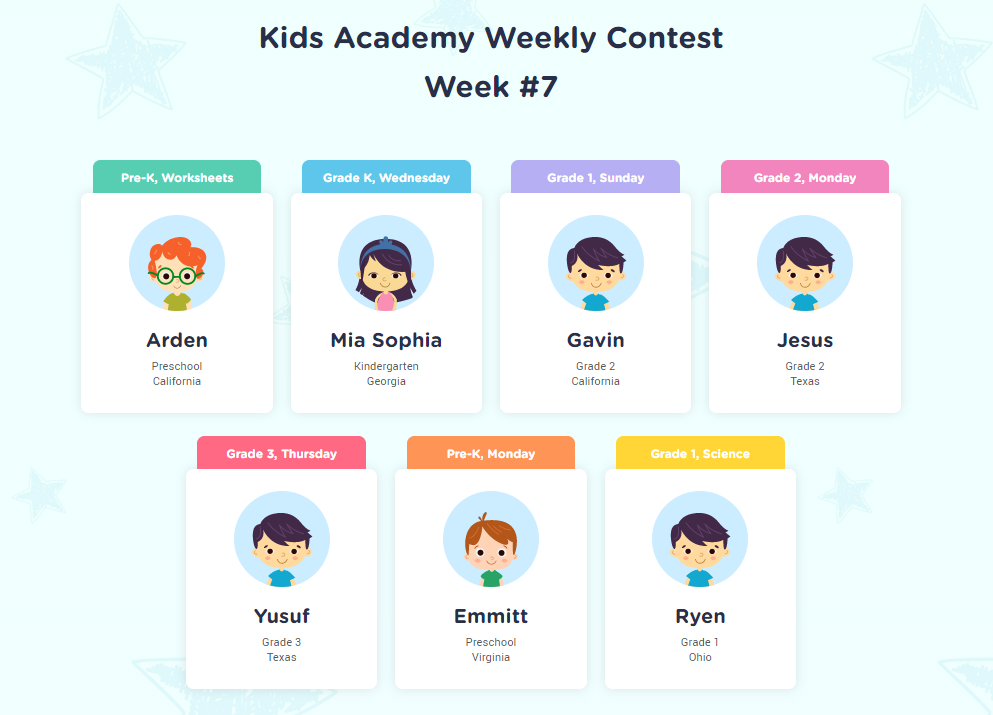Reading comprehension improvement Normal Worksheets for Ages 5-6
6 filtered results
-
From - To
Boost your child's reading skills with our expertly crafted Reading Comprehension Improvement Normal Worksheets for Ages 5-6! Designed to make learning fun and effective, these colorful worksheets help young readers develop essential comprehension abilities. Kids will practice identifying main ideas, sequencing events, and understanding simple narratives. Each worksheet features engaging stories and Illustrated activities to capture their imagination. Ideal for classroom use or homeschooling, our resources provide a strong foundation for confident reading. Equip your little learners with the skills they need for academic success—start exploring today with Kids Academy's trusted educational materials!
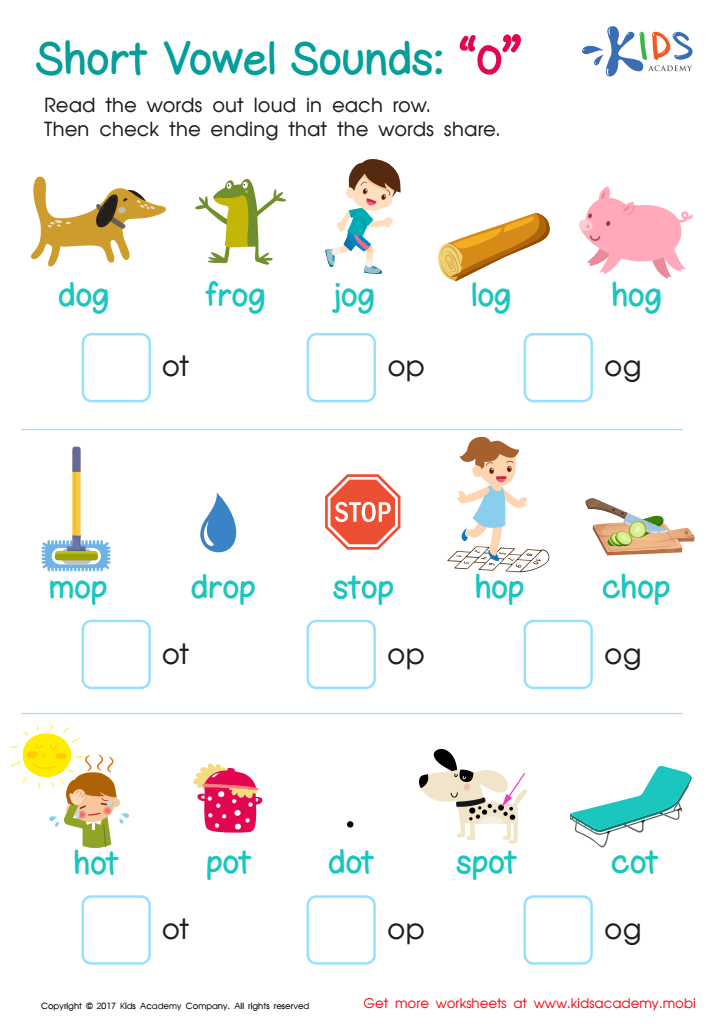

Short vowel Sounds "o" Spelling Worksheet
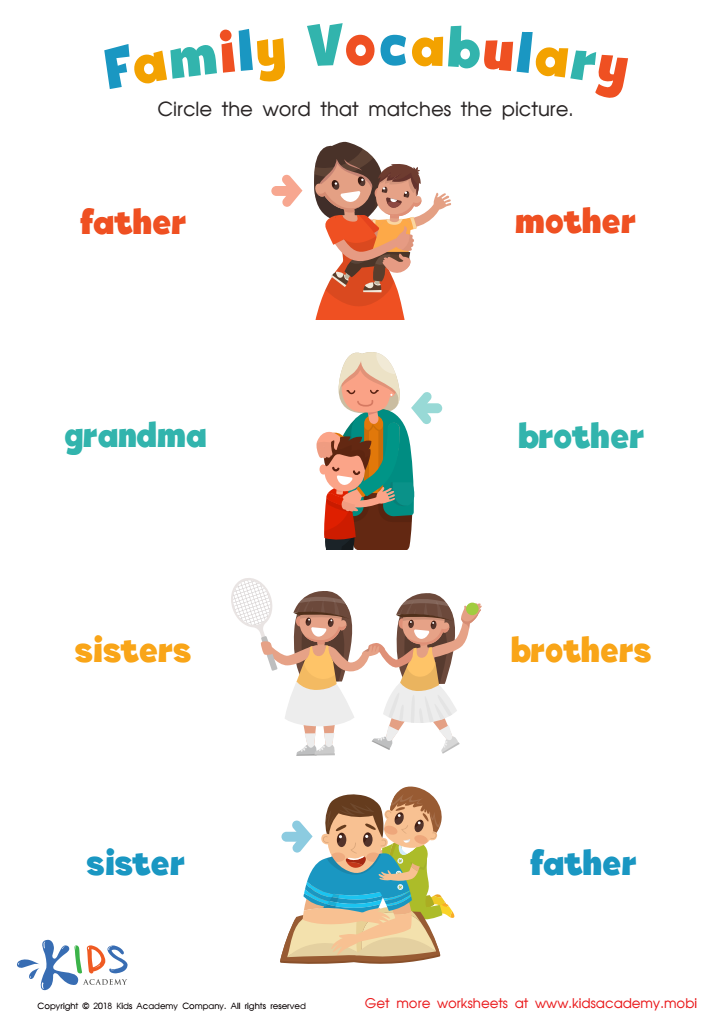

Family Vocabulary Worksheet
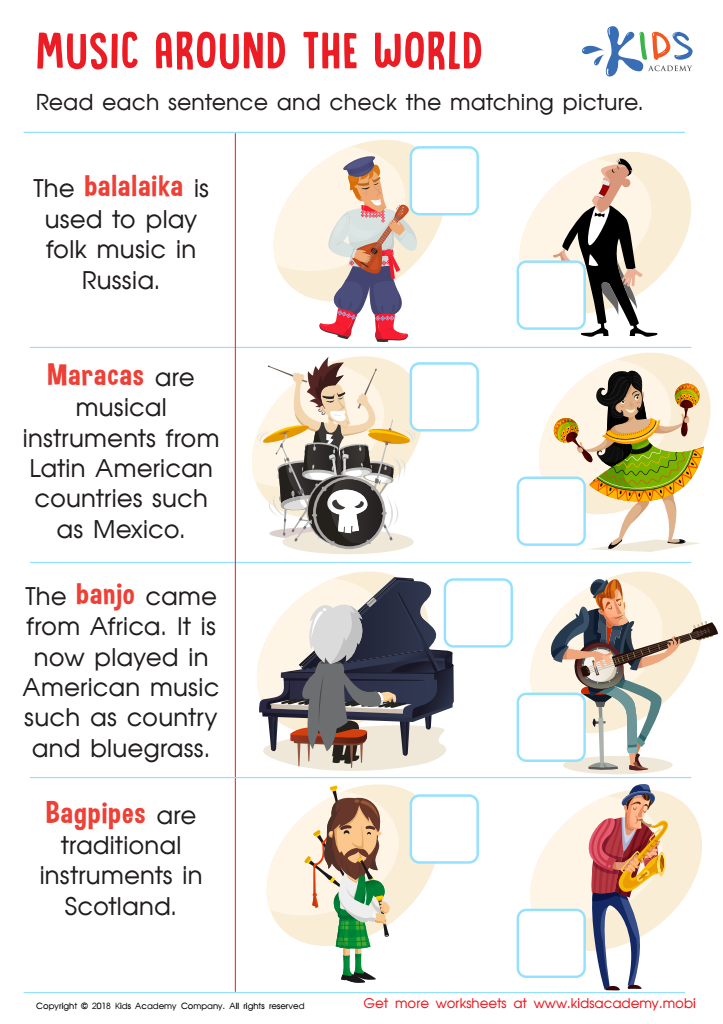

Music Around the World Worksheet
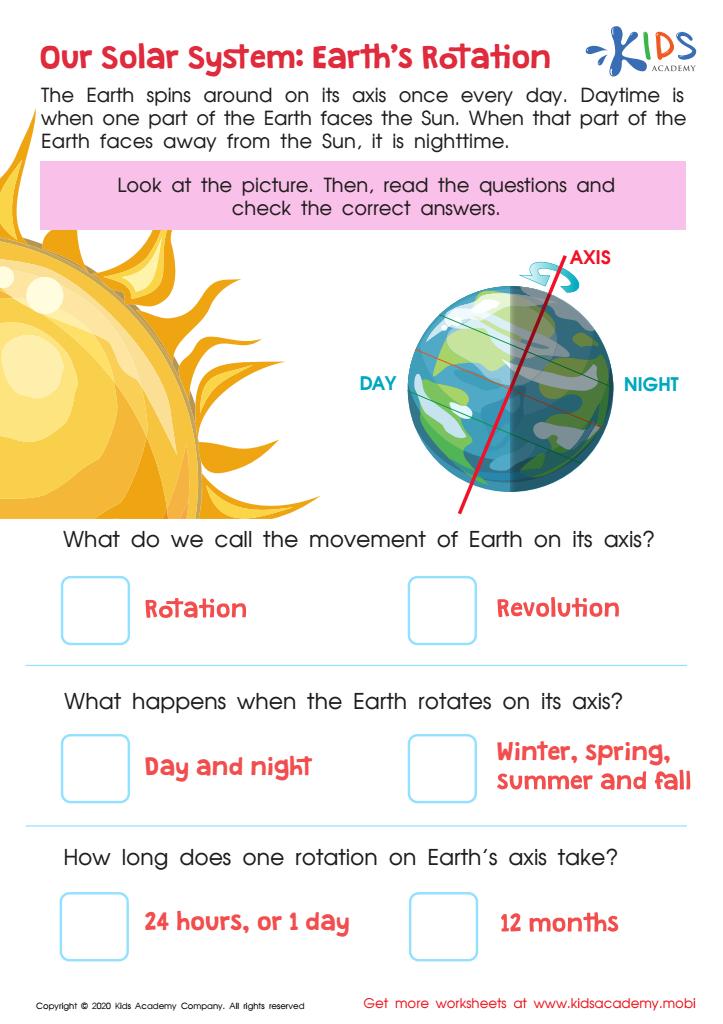

Our Solar System: Earth's Rotation Printable
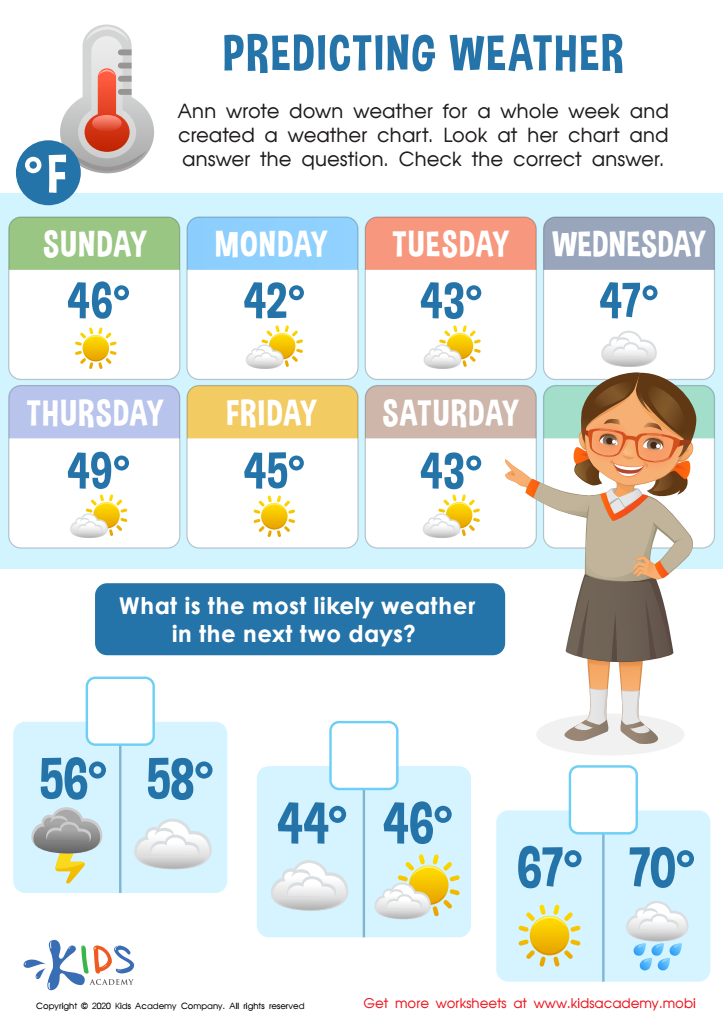

Predicting Weather Worksheet
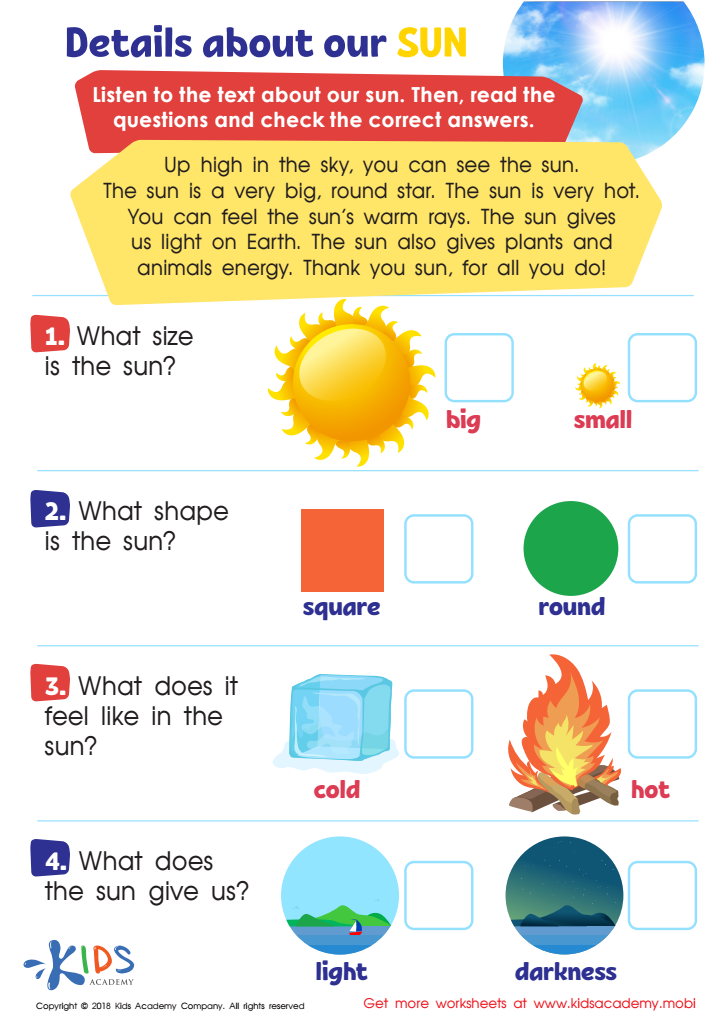

Details About Our Sun Worksheet
Reading comprehension is the cornerstone of all academic learning, making it crucial for children aged 5-6. At this early age, young learners are transitioning from "learning to read" to "reading to learn." Proficient reading comprehension skills enable them to process and understand text, laying a solid foundation for future learning in all subjects, including science, social studies, and math.
Parents and teachers should prioritize reading comprehension because it promotes language development, vocabulary expansion, and critical thinking. Children with strong reading comprehension skills are better able to follow instructions, grasp new concepts, and develop problem-solving abilities. Moreover, understanding what they read allows children to enjoy books and fosters a love for reading, which can lead to lifelong learning and curiosity.
Academically, reading comprehension is linked to better performance on standardized tests and overall school success. Beyond academics, it also enhances children's social-emotional development. Stories provide perspectives on different cultures, emotions, and experiences, helping children develop empathy and a better understanding of the world around them.
For these reasons, adults guiding children’s early education must focus on improving reading comprehension skills, using techniques such as reading aloud, discussing stories, and encouraging children to ask questions and make predictions, all of which can significantly enhance their cognitive and educational development.
 Assign to My Students
Assign to My Students








